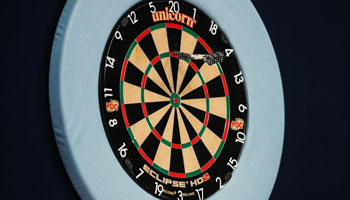Usain Bolt’s 100m world record of 9.58 seconds was set at the 2009 World Championships and continues to be the time to beat to this day.
The Jamaican sprint king, included in our top 10 greatest Olympians, retired in 2017 and with no athlete looking like they will eclipse his fastest 100m time anytime soon, we look back at his heroics in Berlin.
The build-up
Bolt was already the 100m world record holder having posted 9.69 seconds when winning Olympic gold in Beijing in 2008.
In the semi-final he teased that something special might be on the cards when he clocked 9.89secs, despite easing down at the finish.
It was a warning to his rivals and a reminder to the Berlin crowd to keep watching.
The race
It was a year to the day since he lowered the 100m mark in Beijing and the Jamaican powered off from the start. He was in control of the race after just 30m, with a world record already looking possible.
The hopes of Tyson Gay and Asafa Powell – who eventually came a distant second and third – were over before they had already begun.
Bolt stormed across the line a huge eleven hundredths of a second faster than his previous record. It was the biggest improvement in the 100m world record since electronic timing began.
The aftermath
Bolt was not done there and four days later he emphasised his dominance on the track by setting a new 200m world record of 19.19s.
The closest Bolt came to his own 100m world record was a 9.63s run at the London 2012 Olympics, where he defended his title.
By the time he was coming close to retirement in 2017, the Jamaican’s best was 9.95s and he closed his career with a bronze in the 100m at the World Championships in London.
It came just before a dramatic last race in the 4x100m final where he crashed to the ground after tearing his hamstring with 50m remaining.
What Bolt said
“I’m just happy I won. Running 9.5 was definitely a big thing so I’m proud of myself because I’m the first man to have done that. I’m proud I did well.
“I got a good start, that was my main aim. My drive phase was good. I got out of my drive phase and saw I was leading so when I got to 50m I knew it was going to be hard to get past me because it’s the strongest part of the race.
“I ran through the line, I just looked over my shoulder a little bit (before the line) and overall it was a good race.”
History of the men’s 100 metres
1936: American Jesse Owens wins Olympic 100 metres gold at the politically-charged Berlin Games.
1960: Armin Harry of West Germany becomes the only European to set the event’s world record at the Zurich Olympics in 1960.
1968: American Jim Hines becomes the first man to officially break the 10 secs barrier with a time of 9.95 secs at the Mexico City Games.
1988: Ben Johnson is stripped of gold medal he won at the Seoul Olympics after testing positive for stanozolol. Carl Lewis is awarded gold with Linford Christie taking silver.
1988: At Seoul Olympics, Lewis becomes the only man to defend his 100 metres title after winning gold in Los Angeles four years earlier.
1992: Linford Christie is crowned 100 metres Olympic champion at the Barcelona Games with a time of 9.96 secs. He was 32 and the oldest Olympic 100 metres champion by four years.
2005: Asafa Powell breaks the 100m world record for the first time, marking a period of Jamaican dominance that has seen either himself or Bolt hold the record since.
2008: Bolt storms to victory at the Beijing Games, setting a new world record of 9.69 secs.
2009: Bolt stuns the World Championship in Berlin when he shaves 0.11 secs off his own world record, reaching a top speed of 27.79 mph.
5 fastest men’s 100 metres runners
Join bwin today and receive up to £20 money back as a FreeBet if your first wager (3+ selections at odds of 1/2 (1.5) or greater) is a loser! Terms and conditions apply.
















